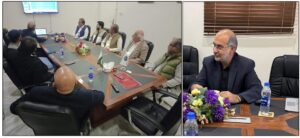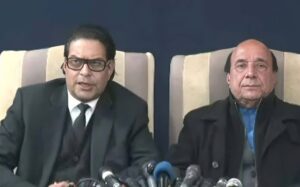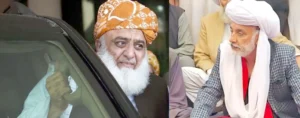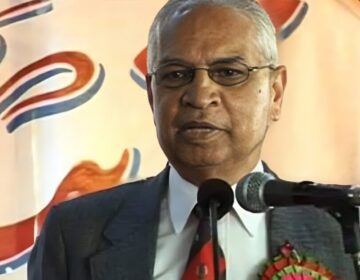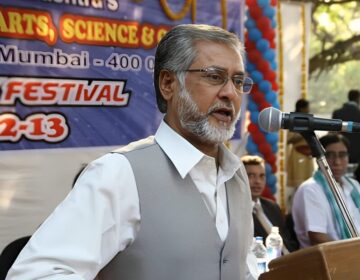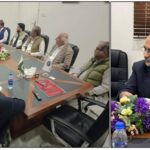By Tariq Khan Tareen
Richard Grenell’s recent endorsement of Imran Khan and his commentary on Pakistan’s internal affairs have not only disrupted diplomatic norms but also laid bare the fragility of PTI’s political strategy. Imran Khan’s narrative—alleging a U.S.-backed conspiracy to oust him, presenting the cypher as evidence, and later admitting to exploiting it for political leverage—reflects a politics that prioritizes personal ambition over national interests. The leaked audio recordings and frequent shifts in his rhetoric further expose a calculated intent to manipulate public sentiment for political gain.
Khan initially held the U.S. responsible for his removal, then shifted blame to General Bajwa, only to later implicate General Faiz Hameed. This constant reshaping of the narrative not only sows confusion among the public but underscores the instability of his political positioning. On one hand, he accuses the U.S. of interference; on the other, he hires a lobbying firm to rebuild ties with Washington. These glaring contradictions are eroding his credibility and tarnishing his party’s reputation.
Not long ago, PTI loudly championed the slogan “Absolutely Not,” presenting itself as a protector of Islamic values and Eastern integrity. Today, the same party is seeking validation from the U.S. congressmen and public figures. This dramatic about-face not only unravels the myth of PTI’s ideological steadfastness but also highlights the opportunistic underpinnings of its politics. Leadership built on deception and inconsistency is not leadership—it is manipulation cloaked in populist rhetoric.
Grenell’s support, particularly as a prominent LGBTQ+ advocate, adds another layer of controversy to PTI’s increasingly fragmented political image. His advocacy aligns with groups that attempted to introduce contentious legislation under the guise of protecting transgender rights in Pakistan, later struck down by the Shariah Court. For a leader like Imran Khan, who once positioned himself as the guardian of Pakistan’s cultural and religious values, aligning with such individuals raises serious questions about his priorities.
Imran Khan’s political trajectory has reached a point where external support is being pursued at any cost, regardless of its implications. When a leader loses the trust of their domestic constituency, seeking validation abroad becomes a dangerous fallback. However, when these foreign endorsements come from individuals whose values conflict with the country’s cultural and religious ethos, it amplifies public skepticism. Is this the same PTI that once prided itself on being the flag-bearer of Islam and national sovereignty?
The actions of PTI’s leadership are not only undermining the party’s credibility but also destabilizing Pakistan’s political and social framework. A strategy rooted in lies, contradictions, and reliance on foreign support signals desperation, not strength. Stirring public unrest and pushing the country toward instability is neither statesmanship nor patriotism—it is reckless opportunism.
By aligning with polarizing figures like Grenell, PTI reveals how far its focus has shifted from national priorities to personal survival. Politics that hinge on self-interest and foreign endorsements rather than public service and principled governance are destined to fail. A party weakened from within by its leadership’s missteps needs no external adversaries—it becomes its own worst enemy.
Foreign interference in Pakistan’s politics poses a grave threat to national sovereignty. PTI’s overtures to foreign actors, while compromising its own standing, have also shaken public confidence. It is imperative for the Pakistani people to see through these contradictions and demand accountability.
Imran Khan’s political tactics have now reached an inflection point. His repeated attacks on public institutions, coupled with his reliance on external validation, have further isolated his party from mainstream politics. A narrative built on fabrication and inconsistency is not just a disservice to the public—it is a threat to the nation’s stability and future.
The people of Pakistan must recognize that a party whose leadership contradicts its own principles and undermines its stated ideals has little to offer the nation. The reliance on figures like Grenell only underscores one truth: this is not a struggle for the nation’s betterment—it is the epitome of political decline and leadership failure.





